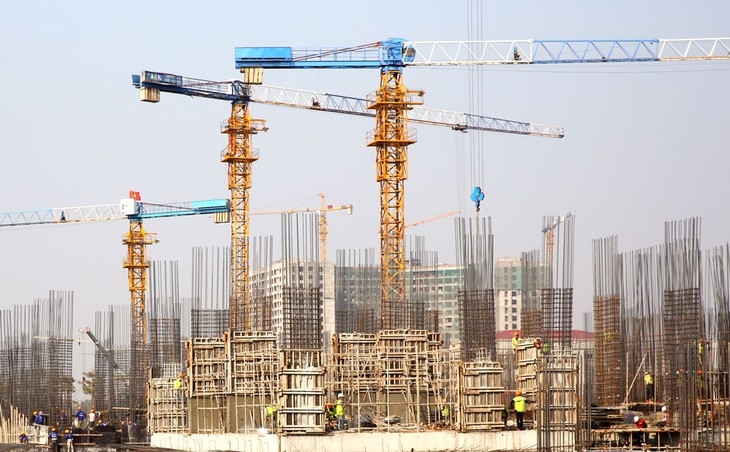HCMC – Enterprises voiced concerns that the outstanding debt issue, particularly in public investment projects, may push construction firms into bankruptcy.
The warning was given at a seminar to discuss solutions for construction debts organized by the Vietnam Association of Construction Contractors (VACC) in collaboration with the Vietnam Chamber of Commerce and Industry yesterday, August 18.
According to Khuong Tat Thang, deputy general director of Truong Son Construction Corporation, debts dating back more than 10 years have caused significant hurdles to corporate operations.
Hoang Trung Kien of Cienco 4 Group JSC, said the lingering construction debts have hindered contractors’ cash flows, legal benefits, tax and insurance payments.
As of March 31, 2022, Truong Son’s total receivables stood at VND1,539 billion. The debts owed by projects in which state capital management agencies are investors were VND1,004 billion.
Meanwhile, Cienco 4’s total outstanding debt reached VND187 billion, including VND22.5 billion in the Dong Tru Bridge project and roughly VND20 billion in package J3 of the Ben Luc-Long Thanh project.
According to Thang, outstanding debt was frequently found in projects and bidding packages as corporations signed agreements with investors using the State budget capital and Government bond capital.
Once the project comes into operation, the investors may postpone the allocation of funds to repay the investment.
The time-consuming processes of inspection, audit and final settlement of constructions have hampered debt collection, added Kien.
Currently, the fact that certain contracts would be paid on time “provided that the project is arranged with sufficient capital” has shifted risks to the contractors, according to businesses.
Such additional criteria are not in line with construction regulations, decelerating the contractor’s cash flow and the project’s timeline.
According to Chairman of VACC Nguyen Quoc Hiep, if the issue continues for another five years, the country will no longer have construction businesses.
Thus, firms encouraged the Government to guarantee the financial responsibility of investors as well as legislation on payment procedures when amending the Law on Construction.
Enterprises suggested a flexible mechanism for finalizing and assigning funds for component bidding packages to prevent long delays.









